QuestionQUESTION: My dragon is in a twenty gallon tank until I upgrade next week. He hasnt eaten in five days. He is sleeping under his basking light all day for the last week. He has started hiding under his basking hammock also. Two of his legs are about to shed. He has had a bowel movement everyday though. He wont eat crickets, greens, veggies or fruit. He has a uvb bulb that is half the size of his cage and an intense heat bulb basking light. He also has a red night bulb. His basking spot is 100 degrees and the cool side is at 80 degrees. Is he brumating or should I be worried? He has never been like this before.
ANSWER: Hmm...well, dragons will sometimes go off feed during the winter, but his staying under the basking light isn't quite normal for that.
How is his weight?
If he seems to be losing weight, I would recommend a vet visit. An annual visit (bring a fresh, not dried out, fecal sample along in a baggie), and a check for parasites, is a very good idea. Live insects can occasionally transmit parasites, and he may have had them before you got him, too. They can build up over time in a captive environment. So, testing to see if he has anything that's making him feel unwell is a good idea.
If the fecal exam comes back clean, and the vet says he is healthy, then you can probably safely assume he's just brumating, unless his behavior changes for the worse. At the moment, I would opt to check, due to the excessive basking.
---------- FOLLOW-UP ----------
QUESTION: Well I got him a supplement food called reptiboost this evening and gave him a force feeding and im getting a bew uvb in the morning since ive had him almost a yr and just found out it needed to be changed six months ago for his health. So im hoping these two will remedy his condition or do u think I should still find a vet?
AnswerWell, if he has parasites, reptiboost will not fix that. If he's suffering from a calcium deficiency...does the 'reptiboost' contain any calcium and D3?
Replacing the light will help. If he does improve, it may have been simply a calcium issue.
Keep in mind that being force-fed is HIGHLY stressful for reptiles, and could quickly make an illness worse, if it isn't correcting the real problem.
If he does not, he'll still need the vet. Be careful, once a reptile begins to show signs of illness, they are usually extremely ill. Reptiles will hide illnesses for as long as they can, to avoid attracting predators or being picked on by more dominant animals.
Again, an annual vet visit and parasite check is still recommended, even if his issue turns out to be calcium deficiency. A good vet will not charge an arm and a leg for a simple office visit and fecal exam. You should be able to get it all done for around $100, max. ARAV.org may help you find a reptile vet locally. Don't be afraid to price-shop, just be sure that the vet you pick has plenty of reptile experience. (If someone quotes you $80 for an office visit...look for another. I found a local vet here with office visits under $40).
More information about UVB lighting:
UVB fluorescent lights: Must be replaced every 6 months, as the UV coating wears off. Do not produce much heat. Are effective only up to 6 inches from the bulb. (Basking areas should be 4 inches from the bulb, for best effect). Cost $20 to $40.
UVB mercury-vapor lights: Must be replaced every 3 years. Do produce intense heat, making them suitable only for larger enclosures, where they can double as a basking lamp. Throw UVB light for several feet. Cost $40 to $80
UVB Compact Fluorescent lights: Behave the same as UVB standard lights. May not produce bright enough light to fully contract the reptile's pupils, which allows the UVB light to irritate their eyes and damage their retinas. At least one newer model has corrected this problem, but shop with extreme care.

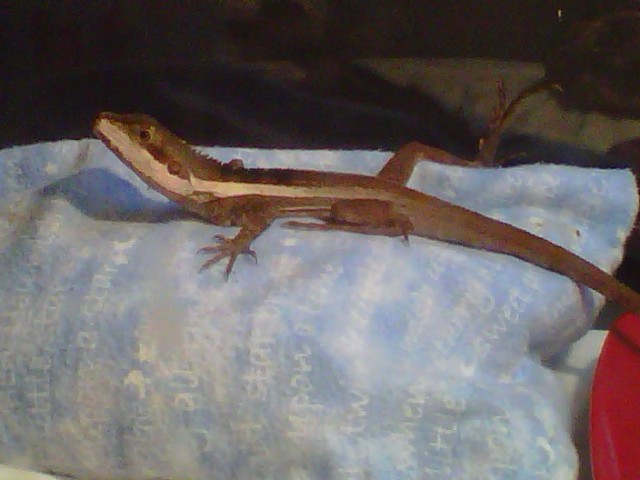 sick striped water dragon HELP
QuestionLil Bit
QUESTION: I took her to the vet
sick striped water dragon HELP
QuestionLil Bit
QUESTION: I took her to the vet
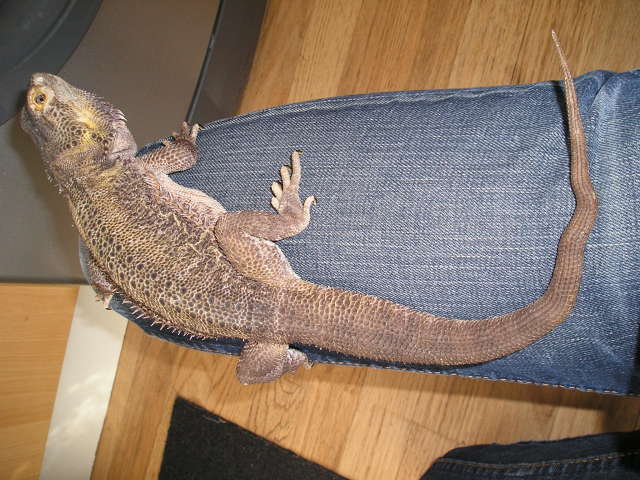 kink,bend or break in tail
QuestionQUESTION: hi i have a bearded dragon he/she is
kink,bend or break in tail
QuestionQUESTION: hi i have a bearded dragon he/she is
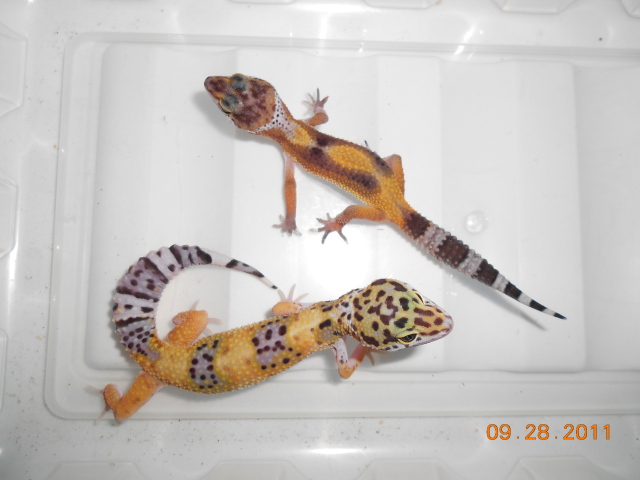 My leopard gecko babies
Question
The Leopard geckos bab
Two months ago,
My leopard gecko babies
Question
The Leopard geckos bab
Two months ago,
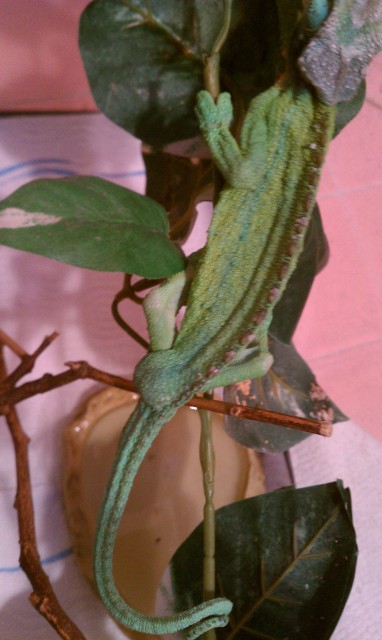 My chameleon
Question
my chameloen
He is very skinny and has develop
My chameleon
Question
my chameloen
He is very skinny and has develop
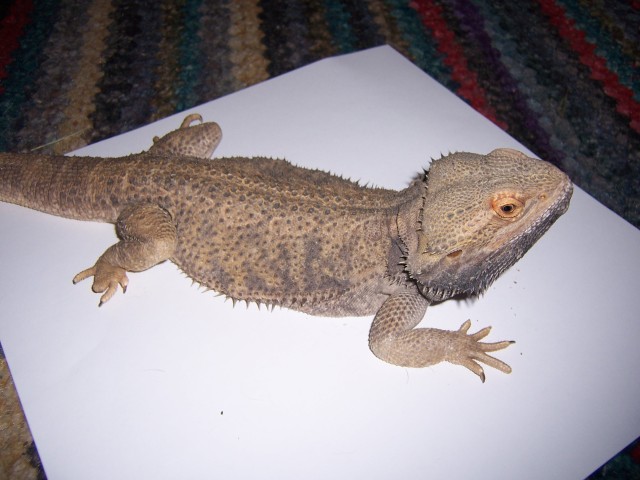 Dragon turning yellow
QuestionQUESTION: I have a 7 year old male, was g
Dragon turning yellow
QuestionQUESTION: I have a 7 year old male, was g